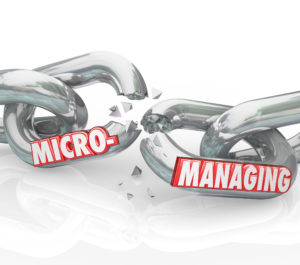Podcast: Play in new window | Download
Subscribe: RSS
Stop Complaining, Making Excuses, and Blaming Others – It is Time to OWN it!!

We will be looking at the situations in life where you want to point fingers at people or you want to say it was not my fault. If you look around you at the choices you have made or some of the outcomes you have had, you need to look around and ask yourself, “What part did I have in this”
I had no control; it happened to me. Take a different approach by asking, “How did it happen FOR you?” What can you learn from this situation so the same situation does not happen again? People do not take enough time to investigate their outcomes.
Begin by asking yourself questions about a situation: What part did I play in this? What could I have done to change the outcome? What could I do differently in the future?
Imagine someone is coming to pick you up for an appointment or you are going somewhere for a specific time. You are watching the clock tick because you know if you do not leave by a certain time you will not make it on time. The person may show up 10 minutes late and you get to the location late. You get frustrated at the person driving you.
Take a step back.
Ask yourself…
What could I have done to achieve a different outcome?
Was I prepared to be out on time?
Could I have called in advance to ensure the person left on time?
Could I check to see if there was any road construction or accidents on their route to be aware of?
Come to the situation as a learner. What parts do I have control of or influence?
Avoid comparing yourself to others. Focus on improving yourself and showing up as your “BEST” self every day.
 Often when people compare themselves, they are looking at one moment in time. As an example, someone has a victory – they seem to have all the luck. They have all the money and everything in place to succeed and it does not work out like that for you.
Often when people compare themselves, they are looking at one moment in time. As an example, someone has a victory – they seem to have all the luck. They have all the money and everything in place to succeed and it does not work out like that for you.
If you rolled out that person’s life and your life, would you be willing to erase all of the memories that you and trade for the other person’s life? If you at it from that perspective, I am sure chances are that you would not want to erase those precious memories.
It is not about competition as it is about playing your own game and showing up as your BEST self every day.
Focus on discovering solutions and look for the opportunities. What can you do about it? How can I make a different? It is not about sitting in the wings and being a wallflower. If you see something that needs to be changed, it’s about letting your voice be known.
Choose to be responsive versus reactive. You will make better decisions when you think before acting. Do you attack like a jaguar or a leopard ready to attack or do you take a step back and collect your thoughts? It is about choosing to be responsive versus being reactive. It takes a lot of emotional intelligence. Otherwise, you are like a bull in a china shop barging in and break everything around you and then you wonder why no one wants to follow you.
When you chose to be responsive your brain is a lot calmer. Your amygdala goes into an irrational mode – fight or flight response. When you are highly emotive and reactive, you are not thinking rationally and you will not make decisions as well. What you want to do is, is to come to a place where you are calm enough to respond, that you thought through what you want to say so you can make better decisions before you act. Not everyone likes to be held accountable but they like to know they are reaching outcomes.
Surround yourself with people who are accountable to for their actions. You become like the people who you surround yourself with. Take a look around you, “Are the people you are hanging out with accountable for their actions?”
You cannot hold others accountable for you cannot hold yourself accountable first.
Be willing to take action on what you want to achieve. Speak up if you need to, make a request, or try something new. Remember if you do what you have always done – you’ll get the same results.
Remember to SIGN UP for our Success Secrets Newsletter and get your free mp3 “Surefire Strategies” download.
DEBRA KASOWSKI, BScN CEC is an award-winning best-selling author, transformational speaker, blogger, and Certified Executive Coach. She has a heart of a teacher and is certified in Appreciative Inquiry and Emotional Intelligence. Her writing has been published in a variety of print and online magazines. Debra Kasowski International helps executives, entrepreneurs, and organizations boost their productivity, performance, and profits. It all starts with people and passion. Sign up the Success Secrets Newsletter and get your free mp3 download today! www.debrakasowski.com
Time 9.46 min.

 Turn your attention to the speaker.
Turn your attention to the speaker.
 Micromanagement and accountability are often misunderstood. Micromanagement is when the manager closely observes or takes control of the work of the people that report to them. They monitor and assess every step of the way. A micro-manager does not ask for input and may hide information to have the upper hand. These individuals do not trust that their people can do the job they were hired for.
Micromanagement and accountability are often misunderstood. Micromanagement is when the manager closely observes or takes control of the work of the people that report to them. They monitor and assess every step of the way. A micro-manager does not ask for input and may hide information to have the upper hand. These individuals do not trust that their people can do the job they were hired for.
 This statement makes me think of the movie, “Groundhog Day” (1993) starring Bill Murray and Andie MacDowell where Bill Murray is continually taking the same actions and attending the same events, repeating each day over and over.
This statement makes me think of the movie, “Groundhog Day” (1993) starring Bill Murray and Andie MacDowell where Bill Murray is continually taking the same actions and attending the same events, repeating each day over and over. World-class executive coach Marshall Goldsmith states: “correcting the behavior, you will discover, does not require polished skills elaborate training, arduous practice or supernatural creativity. All that’s required is the faint imagination to stop what you been doing in the past-in effect-to do nothing at all.” What Goldsmith means “by doing nothing at all” is stopping behaviors like passing judgments, making excuses, hanging onto the past, negative thinking, adding our two cents to every discussion, and always having to win at all costs. How does it impact you or others? Sometimes the best thing you can do or say is nothing at all.
World-class executive coach Marshall Goldsmith states: “correcting the behavior, you will discover, does not require polished skills elaborate training, arduous practice or supernatural creativity. All that’s required is the faint imagination to stop what you been doing in the past-in effect-to do nothing at all.” What Goldsmith means “by doing nothing at all” is stopping behaviors like passing judgments, making excuses, hanging onto the past, negative thinking, adding our two cents to every discussion, and always having to win at all costs. How does it impact you or others? Sometimes the best thing you can do or say is nothing at all.